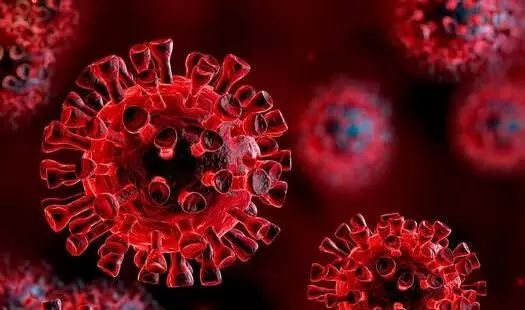
Delta variant 40-60% more transmissible than Alpha variant: Dr NK Arora
text_fieldsNew Delhi: The Delta variant of the novel coronavirus is around 40-60 per cent more transmissible than the Alpha variant, said Dr NK Arora, the chief of the Covid-19 working group of the National Technical Advisory Group on Immunization (NTAGI).
"It is around 40-60 per cent more transmissible than its predecessor (Alpha variant) and has already spread to more than 80 countries, including India, UK, US, Singapore and others," Dr Arora said.
He also said that the Delta variant has mutations in its spike protein, which helps it bind to the ACE2 receptors present on the surface of the cells more firmly, making it more transmissible and capable of evading the body's immunity.
He cited some studies that show that there are some mutations in this variant that promote "syncytium formation".
Besides invading a human cell, Arora said that the variants replicate faster and lead to a strong inflammatory response in organs like the lungs. However, he added that it is difficult to say that disease due to delta variant is more severe.
Delta variant was first identified in October 2020 in India and was primarily responsible for the second wave in the country and today accounting for over 80 per cent of new Covid-19 cases. It emerged in Maharashtra and travelled northwards along with the western states of the country before entering the central and the eastern states.
Earlier on Friday, a new ICMR study has found that most Covid positive patients, who had received at least one vaccine dose before catching the infection, were infected by the Delta variant.
The ICMR study is the first such analysis on breakthrough infections post-vaccination. The study shows that most vaccinated individuals were infected by the Delta variant in India.
While elaborating about the Standard Operating Procedure (SOP) for testing and follow-up on variants, what makes the Delta variant so transmissible, Arora said there is a need to keep a strict vigil on the emergence of variants of concern and outbreaks so that they can be contained before they spread to a larger region.
He added that the Delta Plus variant -- AY.1 and AY.2 -- has so far been detected in 55-60 cases across 11 states, including Maharashtra, Tamil Nadu, and Madhya Pradesh. AY.1 is also found in countries like Nepal, Portugal, Switzerland, Poland, Japan but AY.2 is less prevalent.
"The variant is still being studied for its transmissibility, virulence, and vaccine escape characteristics," said a Ministry of Health and Family Welfare (MoHFW) statement quoting Arora.
Asked if the vaccines are effective against the Delta variant, Arora said, "Yes, current vaccines are effective against Delta Variant as per the studies undertaken by ICMR on the issue."
Though there is a significant dip in the number of cases in most parts of the country, the INSACOG co-chair said, some regions are witnessing a high-Test Positivity Rate (TPR) particularly in the Northeastern parts of the country and several districts in the southern states, most of these cases could be due to the Delta variant.
Replying about the prevention from future waves of Covid-19, Arora said that a virus begins infecting a part of the population, which is most susceptible and also exposed to the infection.
"The second wave is still going on. Any future waves will be controlled and delayed if more and more people get vaccinated and most importantly, people follow Covid-Appropriate Behaviour effectively, especially till a substantial part of our population gets vaccinated. People need to focus on vaccination and adherence to Covid Appropriate Behaviour to manage Covid-19," he added.























